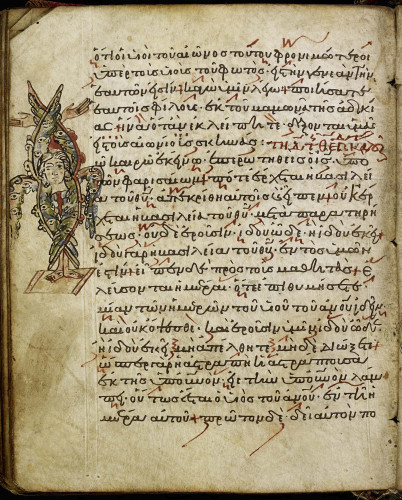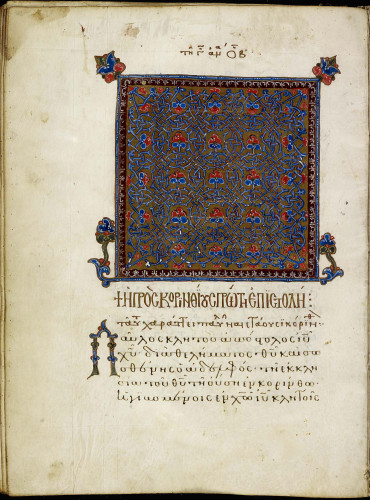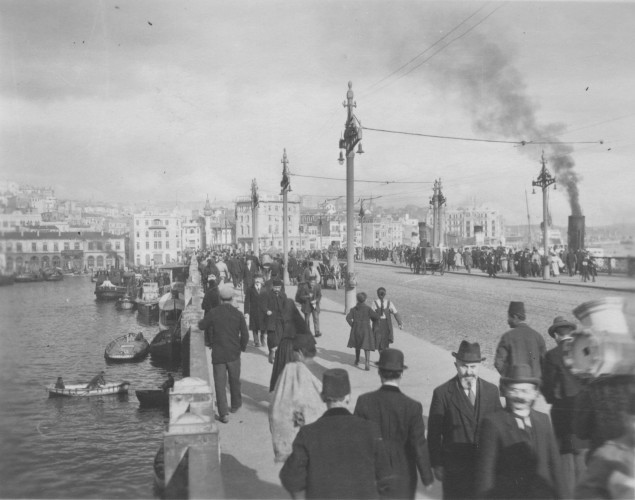I am very excited to announce the publication of the first volume of a two-volume catalog describing the extensive collection of Greek manuscripts at the University of Michigan Library. Authored by Dr. Nadezhda Kavrus-Hoffmann, this fully illustrated catalog describes the largest collection of Greek manuscripts in America, which consists of 110 codices (bound manuscripts) and fragments ranging from the fourth to the nineteenth century. Each of these manuscripts is comprehensively described using the latest developments in the fields of codicology and paleography. The catalog also contains high-resolution images of all the manuscripts, allowing scholars to compare them with other Greek manuscripts held in libraries and museums around the world. In brief, this extraordinary catalog displays a trove of information related to Byzantine culture that will be available to scholars working in many disciplines, including Classical and Byzantine Studies, Art History, Medieval Studies, Theology, and History.

Fol. 111v from Mich. Ms. 28. Gospel Lectionary. <Epiros>, s. xiii–xiv, with underlying text of the Old Testament: fragments from Genesis, Proverbs, and Isaiah. s. xi

Headpiece for the first Epistle of Paul to the Corinthians. Fol. 150v from Mich. Ms. 34. Acts and Epistles. <Constantinople>, s. xiii
The catalog also includes a detailed history of how our collection of Greek manuscripts was acquired, beginning with Professor Francis Willey Kelsey's purchases of biblical manuscript at the Grand Bazzar, Istanbul, on December 1919.

Galata Bridge, Constantinople. Photo by George
Robert Swain, KS43.12 (12/5/19),
Kelsey Museum of Archaeology
This cataloging project began in 2013, when the Library funded Dr. Kavrus-Hoffmann's three separate long-term research visits to study our manuscripts. Thus I want thank Bryan Skib and Martha Conway for arranging the funds. I also want to thank Carl Winberg for his generous donation to support the publication. Lastly, my special gratitude goes to a series of professionals that played significant roles in this long journey: Randal Stegmeyer, Ellen Bauerle, Jilliam Downey, and the U-M Press staff.